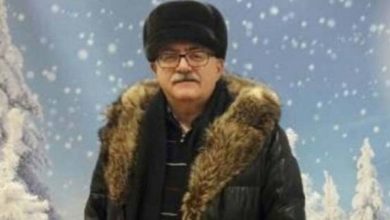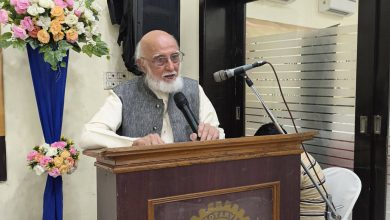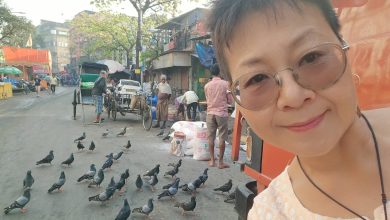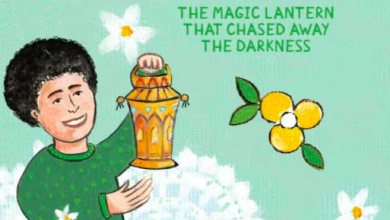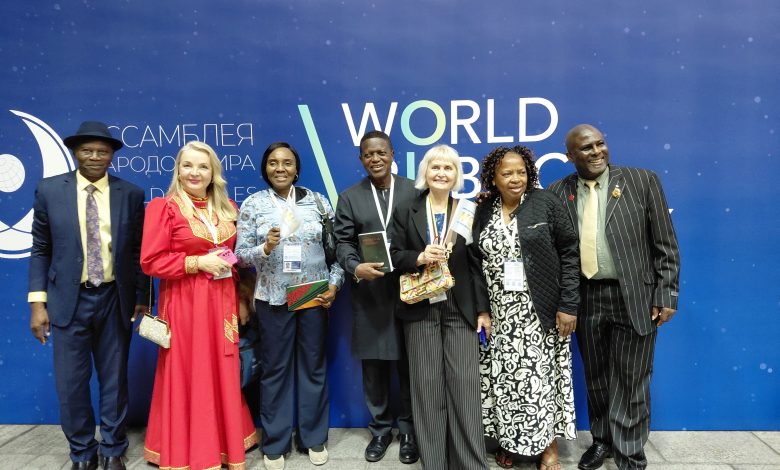
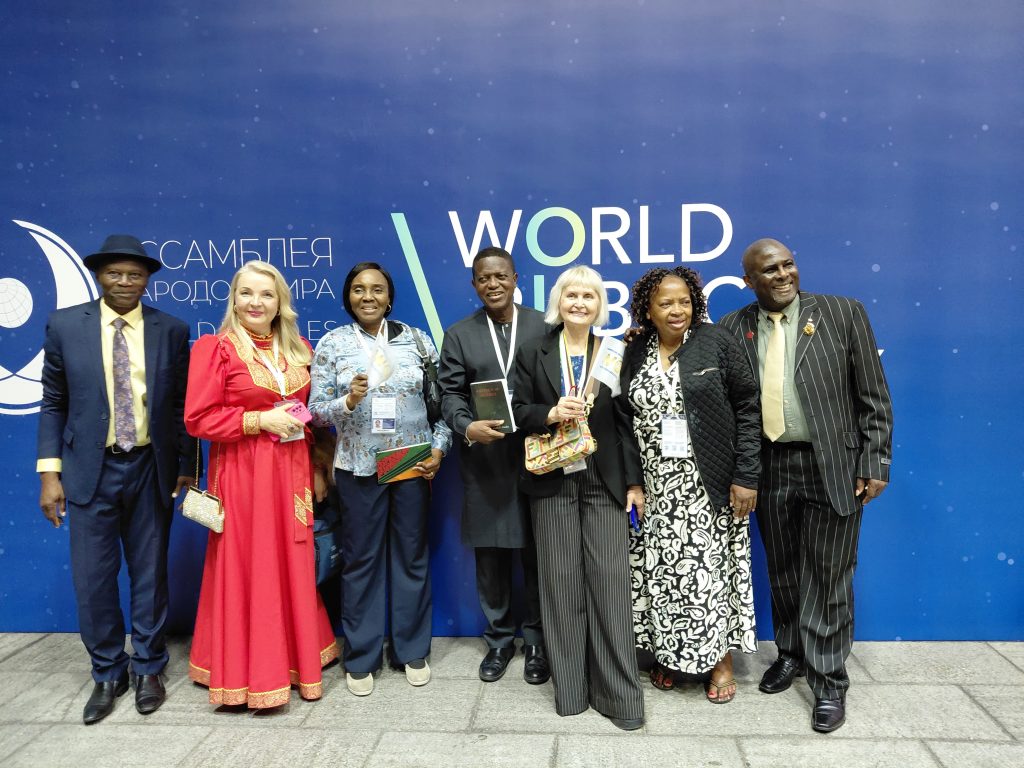 The President of Pan African Writers Association, Professor Bill F. Ndi, in Moscow with More Than a Thousand Writers from around the World
The President of Pan African Writers Association, Professor Bill F. Ndi, in Moscow with More Than a Thousand Writers from around the World
On behalf of the Pan African Writers Association, (PAWA), I would like to Start by thanking Ms. Margarita Al, President of the World Organization of Writers and all the members of the World Organization of Writers Congress and the World Peoples Assembly and Madam Alexandra Ochirova, Co-Chair of the General Council of the Eurasian Peoples’ Assembly, member of the State Commission of the Russian Federation for UNESCO and UNESCO Goodwill Ambassador (Russia).
Other names come to mind such as Mr. Eldar Akhadov, worldclass writer and author of 102 books in seven languages, representing Azerbaijan and Russia and WOW Chief Coordinator. Also to be thanked is Mr. Nikita Gavrilchak who played a vital role in getting our flight tickets as well as our lodging. Finally, all the volunteers too many to name are not forgotten. This event was well organized from the time we touched down at the various Airports in Moscow and welcomed by volunteers who led us to be chauffeured to our respective hotels, the Congress, and all the wonderful and fun loving people from all over the world as well as writers from well over 63 countries that we met at the World Peoples Assembly and the World Organization of Writers Congress.
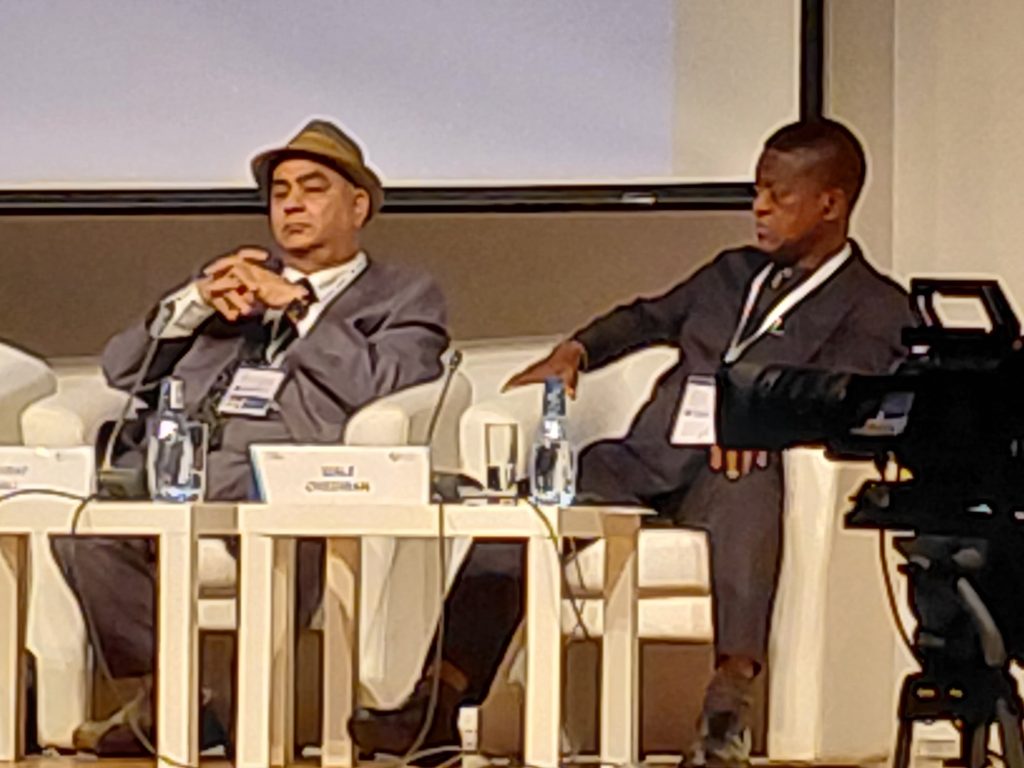
A big thank you to all, especially, the Pan African Writers Association which had delegates in all the eight Roundtables and also well representated at the congressional panel briefing “Humanitarian Modernization– An Imperative for the Development of Modern Civilization”. PAWA was powerfully represented in this Panel Session by its Secretary General, Dr. Wale Okediran and Mr. Ashraf Aboul-Yazid, VP for North Africa and Secretary General of Congress of African Journalists CAJ. They both presented respectively on: “The Pan African Writers Association As An Agent Of Humanitarian Modernization” and “Cultural Dialogue and Humanitarian Modernization: Building Bridges for a Shared Future In Our World, Where Conflicts too Often Dominate the Headlines.”
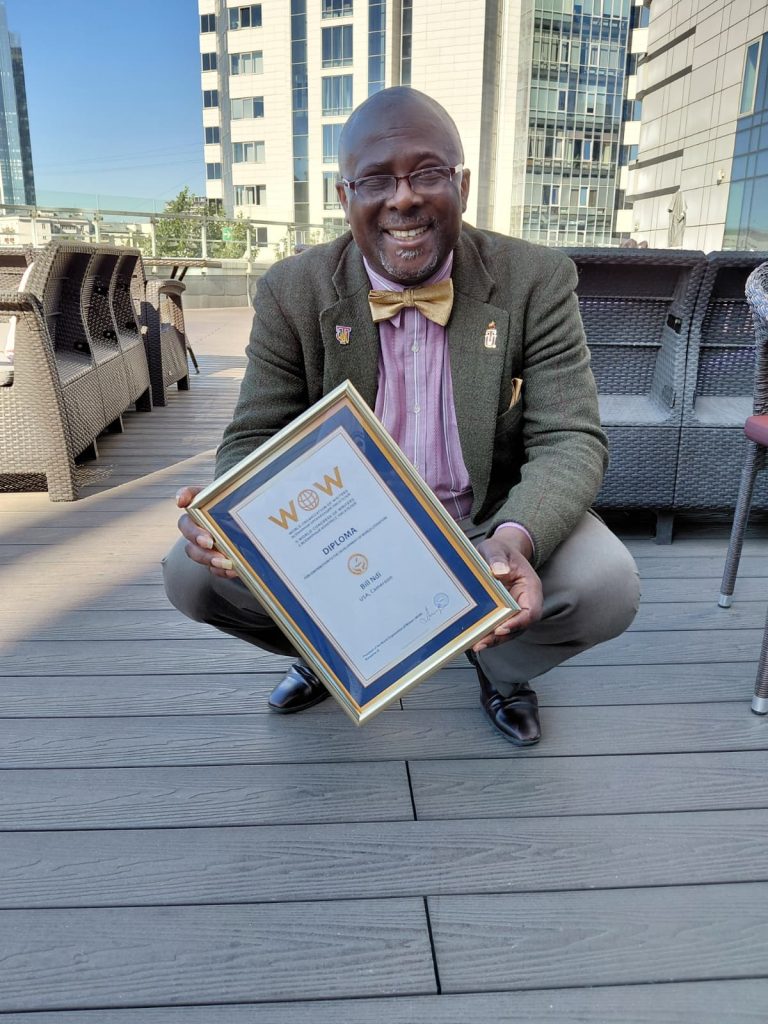 Coming to Moscow for Professor Bill F. Ndi, the President of the Pan African Writers Association, a Southern Cameroonian American, and University Professor at Tuskegee University, an institution reputed as the sacred grounds on which Pan Africanism was conceived can only be summarized and elucidated with the ideas that follow. The World’s Peoples Assembly and the World Organization of Writers (WOW) Bridge Continents and permit the celebration of writers’ Voice, in a place that in and of itself represents a Moment and Monument of Literary Power. This translates to a gesture of Peace and Dialogue, not one to be highjacked to score political points but one that allows Pushkin’s Homeland to engage in a Dialogue of Histories that represents a Symbol of Global Kinship among the more than a thousand iconic writers at this event in Moscow.
Coming to Moscow for Professor Bill F. Ndi, the President of the Pan African Writers Association, a Southern Cameroonian American, and University Professor at Tuskegee University, an institution reputed as the sacred grounds on which Pan Africanism was conceived can only be summarized and elucidated with the ideas that follow. The World’s Peoples Assembly and the World Organization of Writers (WOW) Bridge Continents and permit the celebration of writers’ Voice, in a place that in and of itself represents a Moment and Monument of Literary Power. This translates to a gesture of Peace and Dialogue, not one to be highjacked to score political points but one that allows Pushkin’s Homeland to engage in a Dialogue of Histories that represents a Symbol of Global Kinship among the more than a thousand iconic writers at this event in Moscow.
This is a moment where African storytelling in its journey from wilfull to coerced migration and colonization meets Russian literary tradition. Pushkin, the father of modern Russian literature, whose own ancestry includes African roots through his great-grandfather Abram Petrovich Gannibal, becomes a symbolic figure of global unity. Therefore, stepping into this space is/was for me, a way of reclaiming and continuing a diasporic legacy.
Also, being here in Moscow among more than 1,000 writers from 66 nations holds a significant meaning for PAWA to be part of a chorus of global narratives. It’s a chance for Pan African Writers to share stories shaped by history of subjugation, colonialism, indigenous wisdom, post-independence struggles, intended and or forced migration, global cultural interdependence, and cultural brassage as well as vibrant cultural expressions—stories that deserve a place on the world stage.
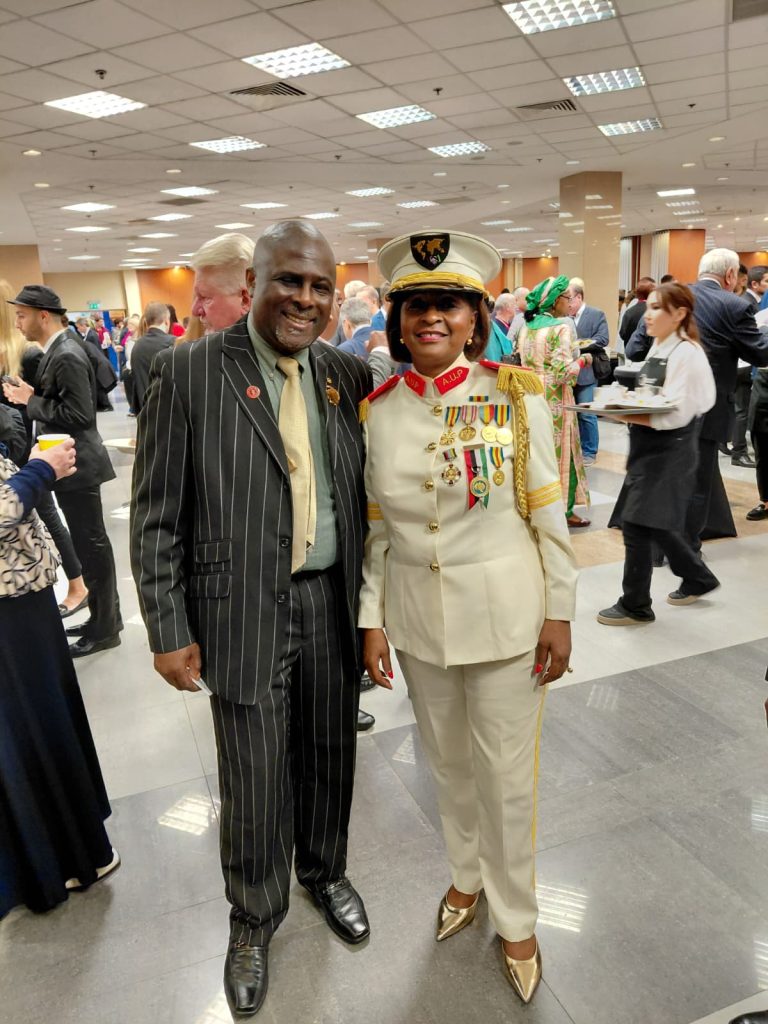
I did not just come to Moscow as a participant but as a flag bearer of the institution, PAWA that I preside and that at which I work, Tuskegee University, in a bit to say: “We are here. Our stories matter. Our voices are strong. We must be heard.” To be in a country that reveres literature, I am or have become an ambassador of African and African American creativity, resilience, and imagination who came in support of the idea of A New World of Conscious Unity.
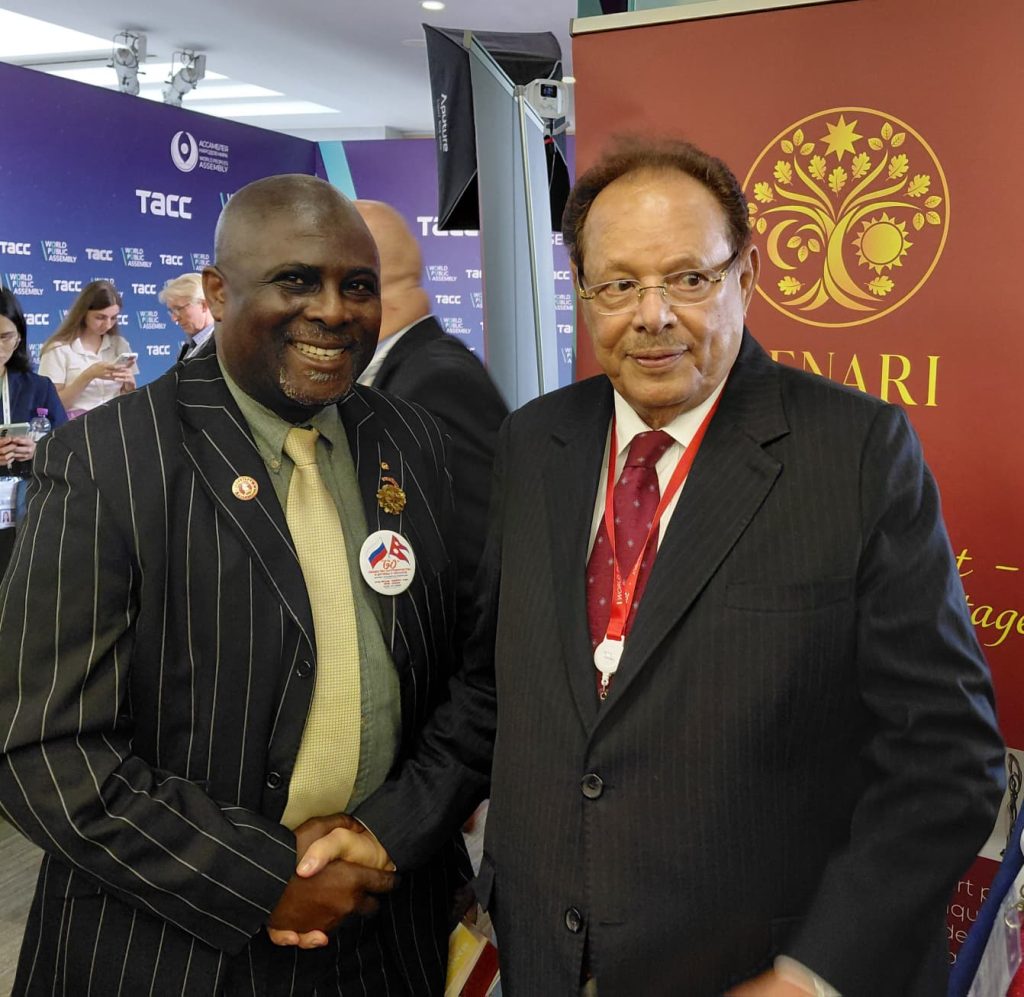
We live in a world often divided by politics and borders. However, literature remains a universal language. I see this gathering as a space for dialogue, empathy, and understanding to which Pan African writers contribute with a unique lens shaped by Africa’s historical upheaval, its multilingual and multicultural identity.
Consequently, being among 1,000 literary voices in Moscow, Russia—the land of Alexander Sergeyevich Pushkin—is to walk into a space where ancestry, artistry, and destiny converge. To me specifically and PAWA in general, this moment becomes a dialogue between Bamenda (Southern Cameroons) and St. Petersburg (Russia), between Lilongwe (Malawi) and Moscow (Russia). It’s a chance to weave African/Cameroonian oral traditions, postcolonial narratives, and multilingual poetics into the global literary fabric—right in the national territory within which Pushkin once wrote verses that shaped the same nation.
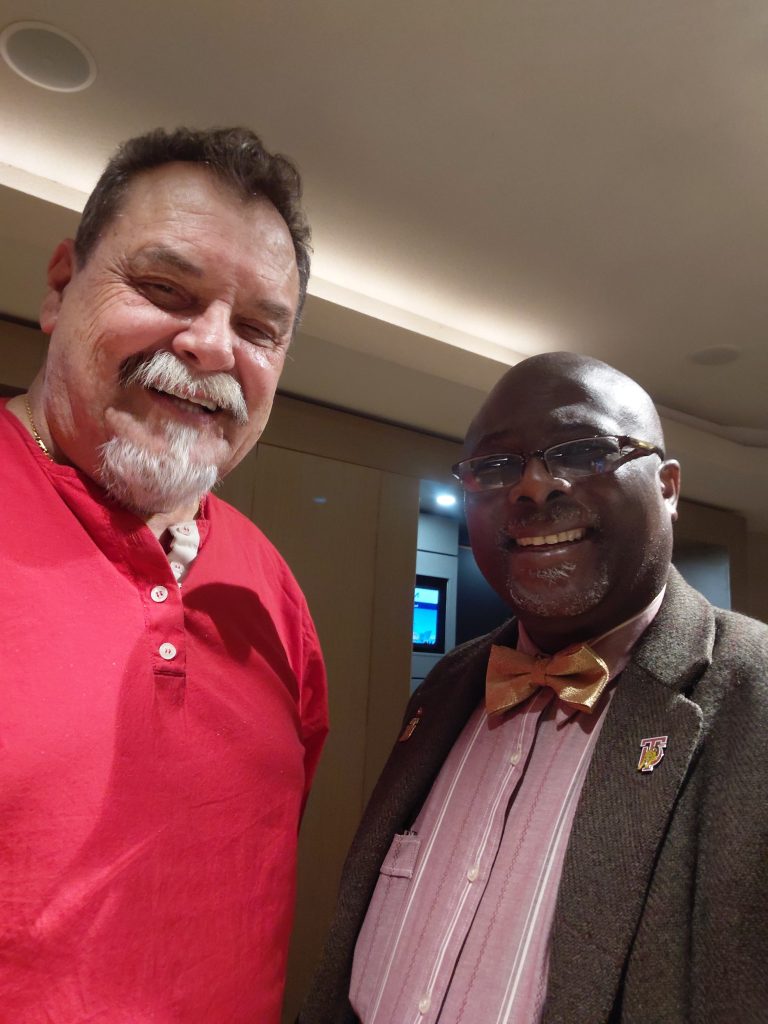
In this gathering of 1,000 writers, the Pan African voice is not just one among many—it is a symbol of resilience, creativity, and historical kinship. It is a reminder to the world that literature is not bound by borders, and that the African continent has always been part of the global story—even in the making of Russia’s greatest poet and writers. So when I stepped foot into Russia, it was not just a visit—it was a return visit to an ancestral kin. It is a literary homecoming. The spirit of Gannibal and the legacy of Pushkin accounts for our poetic bloodline that stretches across continents and centuries. It’s a homecoming of sorts, where the Pan African in me comes to reclaim its heritage and place in the heart of Russian literature.
I congratulate all the medal and diploma recipients for their contribution to world literature. Being one of the recipients of both Medal and diploma myself, I caution that as writers and recipients of these recognition we cannot afford to relent our efforts at striving to have truths published for the unity of humanity. Let us all remember that as writers we are universal men and women of peace, brokering for peace by having the world discover our shared humanity in spite of the modern day plagues of fake news, alternate and fabricated facts, virtual and apparent reality with which we all have to contend.

